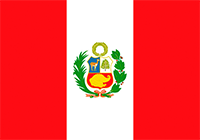INI RESEARCHER IS ELECTED TO INTEGRATE THE BOARD OF THE INTERNATIONAL AIDS SOCIETY
Beatriz Grinztejn is one of the representatives of Latin America and Caribbean in the scientific association that meets researchers, managers, and representatives of social movements of 180 countries
Beatriz Grinsztejn, head of the laboratory of Clinical Research in DST and AIDS, of Instituto Nacional de Infectologia Evandro Chagas, in Fundação Oswaldo Cruz (INI/Fiocruz), just took possession as board member of the International AIDS Society (IAS) to Latin America and Caribbean. Founded in 1988, IAS is the largest world association of the area and meets researchers, managers, and representatives of social movements of 180 countries that work in all fronts in the search for the global reduction of the impact of HIV. The ceremony was held during the International Conference on AIDS and the Conference of IAS on HIV, two of the most privileged meetings on the topic in the world, in The Netherlands.
To the president of Fundação Oswaldo Cruz (Fiocruz), Nísia Trindade Lima, having a researcher of the Foundation in the Board of IAS is an achievement. “It is a joy to us. It is the recognition of the personal history, of the relevance of the academic production, and of the work of Beatriz in the leadership of the laboratory. Indicator of the tradition and excellence of INI in all fields that involve the clinical research in infectious diseases”, she highlighted.
“Beatriz is one of the main interlocutors of our Department for several themes, among them the Pre-Exposure Prophylaxis (PrEP). In a world that needs so much to talk about representations, the choice of a Brazilian, Latin-American woman to hold such position is extremely emblematic. We are very glad for the appointment and I am sure that we will feel very well represented by her”, declared Adele Schwartz Benzaken, director of the Department of Surveillance, Prevention, and Control of IST, HIV/Aids, and Viral Hepatitis of the Ministry of Health.
The analyses of the candidatures and the election process started on November, 2017. The board of IAS is integrated by 20 elected members, four representatives of each region, and the commission lasts four years. Historically, IAS counted on a reduced number of female representatives of the region of Americas and Caribbean in the Board, among which, a single Brazilian, for more than two decades ago, Lair Guerra de Macedo, then Director of the National AIDS Program of Brazil. In addition to her and Beatriz, only other two women represented our region, the Argentinian Mercedes Weissenbacher, and the Venezuelan Gloria Echeverría de Pérez.
Beatriz Grinsztejn
Graduated in Medicine by Universidade Federal Fluminense, Beatriz took master and doctoral degrees in Infectious and Parasite Diseases at Universidade Federal do Rio de Janeiro. She dedicated her career to the Clinical Research in Infectious and Parasite Diseases, especially to the study of HIV/AIDS prevention and treatment, co-infections, and associated comorbidities. In addition to lead the Laboratory of Clinical Research in DST and AIDS of Instituto Nacional de Infectologia Evandro Chagas, she also acts as teacher in the Stricto sensu graduation course of the Institute. Leader of the Group of Clinical and Epidemiological Research in HIV/AIDS (Directory of Research Groups of CNPq), she also is consultant of the Ministry of Health, where she integrates the Advising Committee for Management of the Infection by HIV in Adults (CAA).
In the international scope, she participates in the HIV/AIDS Adult Guidelines Development Group, of the World Health Organization, in the Scientific Expert Panel, of UNAIDS, in the Therapeutic Advisory Committee of the Panamerican Health Organization, in addition to integrate research networks such as the AIDS Clinical Trials Group and the HIV Prevention Trials Network NIAID/NIH (USA). Beatriz is also member of the Executive Committee of Aids Clinical Trials Group network, and is part of the International Advisory Board of the journals The Lancet HIV and Journal of the International AIDS Society.
By: Juana Portugal (INI – Fiocruz)




